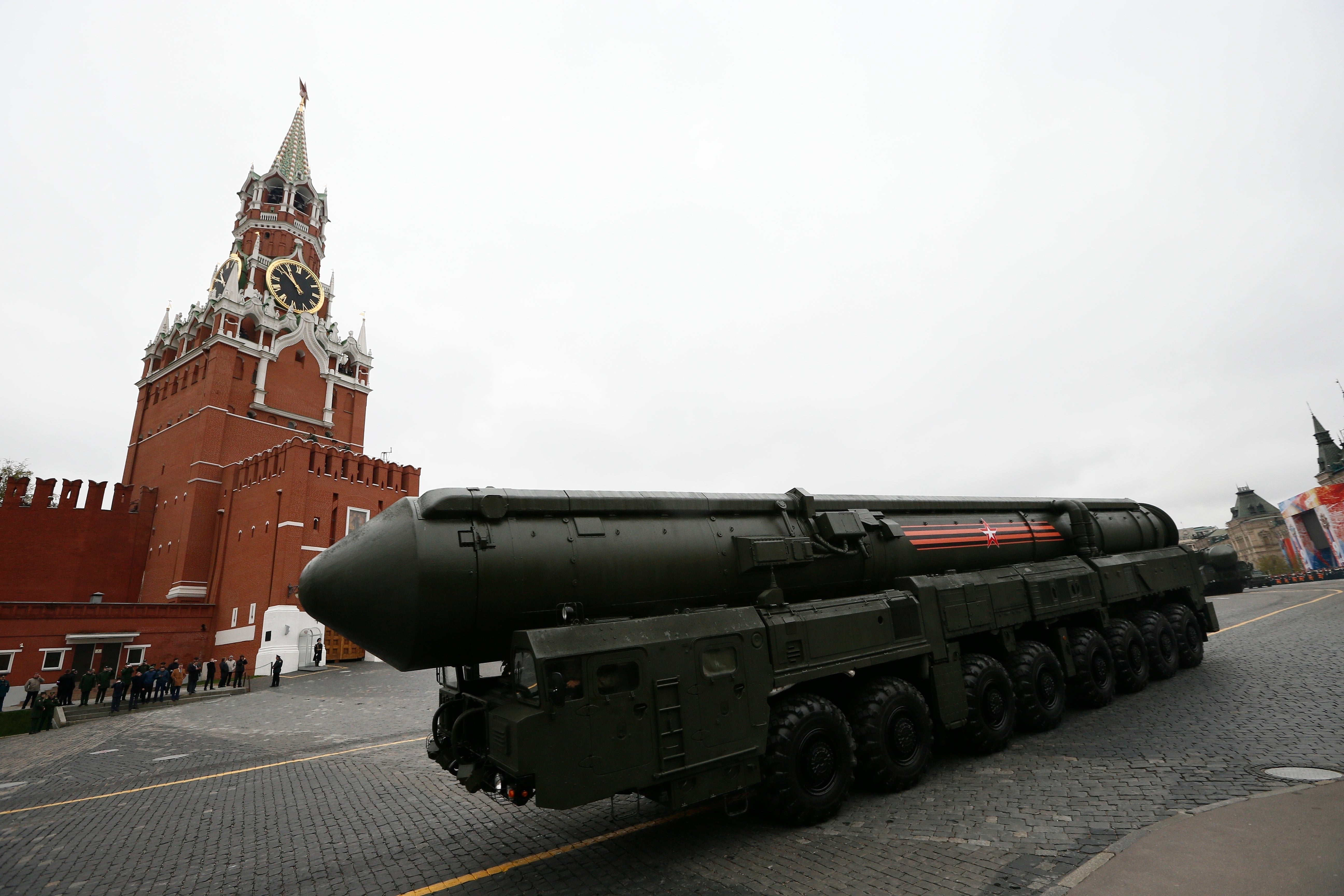“We haven’t gone mad”: Putin warns risk of nuclear war ‘growing’ but insists Russia won’t strike first
Russian president said “we realise what nuclear weapons are”, in address to Human Rights Council
Russian President Vladimir Putin has said the threat of nuclear war over Ukraine is growing - but insists Russia will not strike first.
Mr Putin made the comments during a televised meeting of the Human Rights Council on Wednesday, stating that Russians would “defend ourselves with all the means at our disposal.”
Claiming Russia is regarded in the West as “a second-class country that has no right to exist at all”, he claimed its nuclear arsenal would only be used for retaliation.


“We haven’t gone mad, we realise what nuclear weapons are”, Mr Putin stated. “We have these means in more advanced and modern form than any other nuclear country…but we aren’t about to run around the world brandishing this weapon like a razor.
“Such a threat is growing, it would be wrong to hide it”, he continued, adding that “we do not have nuclear weapons, including tactical ones, on the territory of other countries, but the Americans do – in Turkey, and in a number of other European countries.”
On Wednesday, The United Nations Human Rights Office detailed that Russian forces had killed at least 441 civilians in the early days of its invasion of Ukraine, labelling numerous executions in a number of towns as potential war crimes. Moscow did not respond to these allegations.
At the beginning of the Ukraine conflict, Mr Putin placed the Kremlin’s strategic nuclear weapons forces on high alert. This is a threat he has since repeated, interpreted as a warning against the opposition of Nato allies.

On 27 February, he was depicted on Russian television meeting with his defence minister and the chief of the general staff. He instructed them to place Russia’s nuclear arsenal on a “special regime of combat duty.”
On 21 September, the president announced the “partial mobilisation” of an extra 300,000 conscripts, warning the West against “nuclear blackmail” by suggesting that he could respond to threats with his own nuclear arsenal.



Join our commenting forum
Join thought-provoking conversations, follow other Independent readers and see their replies
0Comments